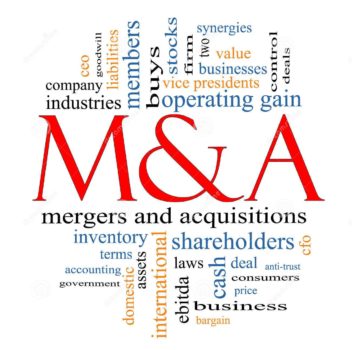Alteris LLC tracks Mergers & Acquisitions (M&A) generalized valuation and other trends/metrics from its various partners and research sources. We will periodically report on what we find here. For more detailed information on valuations and M&A trends contact us directly.
Please note that this information is a summary of many different types of companies of various sizes in a variety of industries. The specific valuation for any individual company, for your business, may and probably will vary greatly. Each company and set of circumstances is unique and must be considered individually.
This data is collected from various sources and includes proprietary deal information from over 200 PEGs (Private Equity Groups) on $10-250mm sponsored transactions, with an average TEV near $50mm.
The information available as of February 2018 show that valuations on private middle-market transactions in the USA surged to a record high of 8.1x EBITDA in Q4 2017. This upward drift in valuations over the past few quarters was accompanied by expansion in debt utilization. Transactions with above-average revenue growth and adjusted EBITDA margins received a 20% premium compared to other acquisitions for 2017. This is twice the historical average.
Corporate and private equity managers see an increase of merger and acquisition (M&A) activity in 2018, both in the number of deals and the size of the transactions. Technology acquisition is now probably the top reason for this increase.
Nearly 70% of executives at USA headquartered corporations and 76% of leaders at domestic based private equity firms say deal flow will increase in the next 12 months. Further, there is unanimous sentiment that deal size will increase, if not stay the same, compared with deals in 2017.
Some definitions:
TEV means Total Enterprise Value, which is calculated as TEV = Market Capitalization + Interest Bearing Debt + Preferred Stock – Excess Cash. TEV allows a comparison of companies with different levels of debt.
EBITDA refers to Earnings Before Interest, Taxes, Depreciation and Amortization EBITDA is a surrogate for cash flow.



